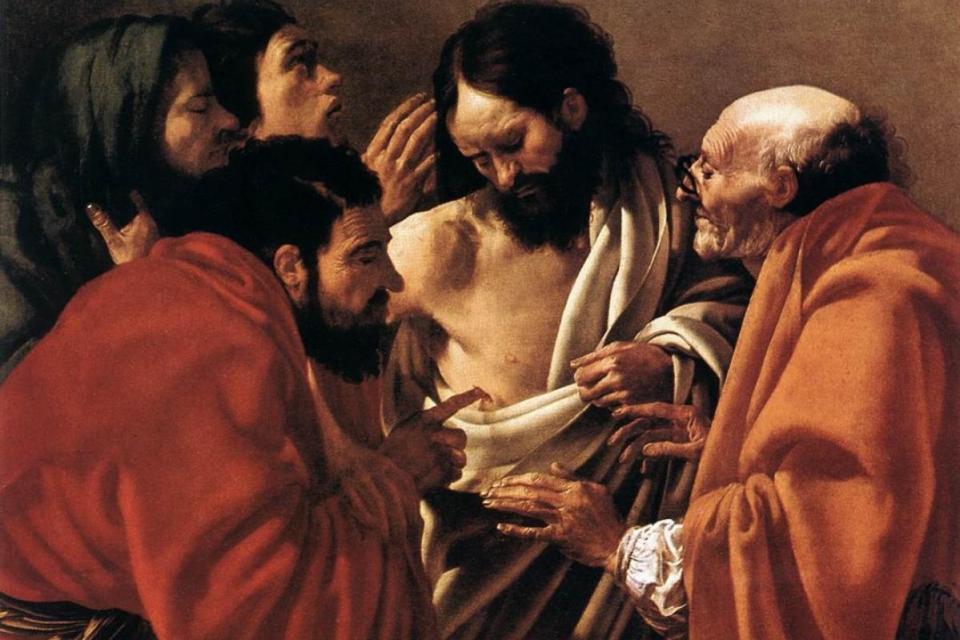From the Gospel: Wounded and blessed – Fr Carlo Calleja
Jesus’ wounds become wellsprings of life for Thomas, his disciples, and all of humankind

Second Sunday of Easter. Today’s readings: Acts 2:42-47, 1 Peter 1:3-9, John 20:19-31.
The pitiful state of the politics and economics in the world today is due to the tragic loss of our Easter imaginaries. If we really believed that Christ rose from the dead, forgiveness would always be given another chance, mercy would not be a gros mot (swear word), and love of neighbour, not distrust, would be the order of the day.
If it is true that we cannot perceive what we do not first believe, then neither can we notice signs of the Resurrection around us if we do not first broaden our imaginaries and embrace the possibility, nay the conviction, of Christ’s victory over death and sin.
We cannot perceive what we do not first believe
The evocative image of Thomas the apostle inspecting the wounds of the Risen Lord, reveals the wounds deep in the core of our own being. He who spent his life on earth touching the wounds of the infirm now has his wounds touched by a man crippled by doubt and incredulity. This well-known gospel scene brings to the fore God’s woundedness, which predisposes Godself to being merciful to humankind. St Pope John Paul II had, in fact, named this day, which concludes the Easter Octave, Divine Mercy Sunday.
 Blessed are the Vulnerable, by Vincent Leclercq.
Blessed are the Vulnerable, by Vincent Leclercq.In his book, Blessed are the Vulnerable, Assumptionist priest and medical doctor Vincent Leclercq reminds us that wounds expose a twofold reality. On the one hand, wounds expose the wounded to external threats, thus putting at risk the integrity of that person. On the other hand, wounds also signify what Leclercq calls a “breach”, in other words, “a hurt that leads us to a new potential”. This dimension exposes how the wound challenges those who come in contact with it, thus drawing attention to how people react to the wound.
Therefore, the wounds on the body of the Risen Christ expose his vulnerability, shown in his mercy towards a humankind wounded by sin and doubt. The Risen Christ identifies with all those who are ‘stigma-tised’, that is, branded and excluded from the community. But the wounds of the Risen Christ also give Thomas a new lease of life as he is reintegrated into his community of faith.
By revealing his wounds to Thomas, the Risen Christ exposes the wounds in Thomas’s inner being. Just as Jesus’s wounds now become wellsprings of life for Thomas, his disciples, and indeed for all of humankind, so do Thomas’s wounds, and therefore ours too, become sources of life for ourselves and for others.
 The Wound and the Blessing, by Luigino Bruni.
The Wound and the Blessing, by Luigino Bruni.Back in 2007, renowned Italian economist Luigino Bruni had published a monograph titled The Wound and the Blessing. In the first pages the reader is invited to imagine a city where all business is done online, lectures through remote learning, and groceries are bought and delivered to one’s doorstep. Thirteen years before the COVID pandemic struck, way before smartphones and social media took the world by storm, Bruni has his readers imagine a world where we all live in a world of our own, comfortably insulating ourselves from the presence of others, for fear of suffering or inflicting upon others the wounds that are inevitably caused by the frictions of our relationships.
Thus, Bruni sets us up to reflect on the system we have created, not least the political and economic system, which is concerned more with self-protection at the expense of the other, rather than the authentic exchange that results from the encounter of the other. For Bruni, it is only in the encounter with the other, which brings with it the risk of being wounded by sharing with others, that we can receive the “great wealth of blessings that are hidden in the wounds of the flesh of our relationships”.
The wounds humankind has inflicted on Jesus through our sinfulness are life-giving in the Risen Lord. Likewise, our wounds are sources of many blessings for the world when lived through, with, and in Christ.